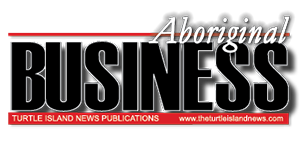By Marc Lalonde
Local Journalism Initiative Reporter
The CEO of a Canada-wide organization whose mandate is to promote Indigenous economic development said the recent resignation of CN’s entire Indigenous Advisory Council was an indication CN, like others in Canada — was paying mere lip service to reconciliation.
National Aboriginal Capital Corporations Association CEO Shannin Metatawabin, whose organization is an umbrella group for more than 50 Indigenous financial institutions, said what most corporate leaders have so far failed to grasp is that Canada is a very wealthy country. And much of that wealth has come at the expense of, and of detriment to, Indigenous people and communities, he said.
“They need to acknowledge that we’ve been excluded from the economy and that there are steps that they can actively take to make sure that Indigenous people are included in that in the new economy going forward,” Metatawabin said.
The CN Indigenous Advisory Council announced its resignation in early December, with the resignations officially taking place December 31.
“As we step back from CN, we are earnest in our belief that CN has missed the mark on reconciliation,” said council co-chairs Roberta Jamieson and Senator Murray Sinclair. “To repair their relationships with Indigenous people, CN must acknowledge and embrace their distinct history and legacy, move beyond performative gestures, and commit itself to transformative change led by Indigenous leadership across all lines of business. Regardless of who was in charge, CN played a role in the oppression of Indigenous peoples and there is no path forward without that acknowledgment.”
Jamieson has said CN has continued to enjoy the benefits of colonialism while Indigenous people continue to suffer the loss.
Metatawabin said much of what he has seen from corporate reconciliation or Indigenous advisory councils has been window-dressing statements and policies and he says Indigenous people can see right through it.
“What we’ve experienced to date is check-box engagements,” Metatawabin said, adding that many of the things companies point to as Indigenous community engagement is the absolute bare minimum.
“It’s the minimum engagement with the Indigenous community, attending a dinner, making a corporate sponsorship to an Indigenous initiative or something,” he said. “That is as much as corporate Canada has done to date, and that’s really not an impact at all.”
Metatawabin suggested that while federal Indigenous loan-guarantee programs like the one promised by the federal government in the fall would be beneficial, there might be better financial tools available to help Indigenous entrepreneurs get better access to capital.
He suggested making financing more accessible through a revolving equity fund or a national Indigenous business development bank, adding tax incentives for corporations that invest in local Indigenous communities could also have the desired effect.
Marc Lalonde/ Local Journalism Initiative Reporter/IORI:WASE/LJI is a federally funded program
 Aboriginal Business Magazine Your source for Aboriginal Business News
Aboriginal Business Magazine Your source for Aboriginal Business News




